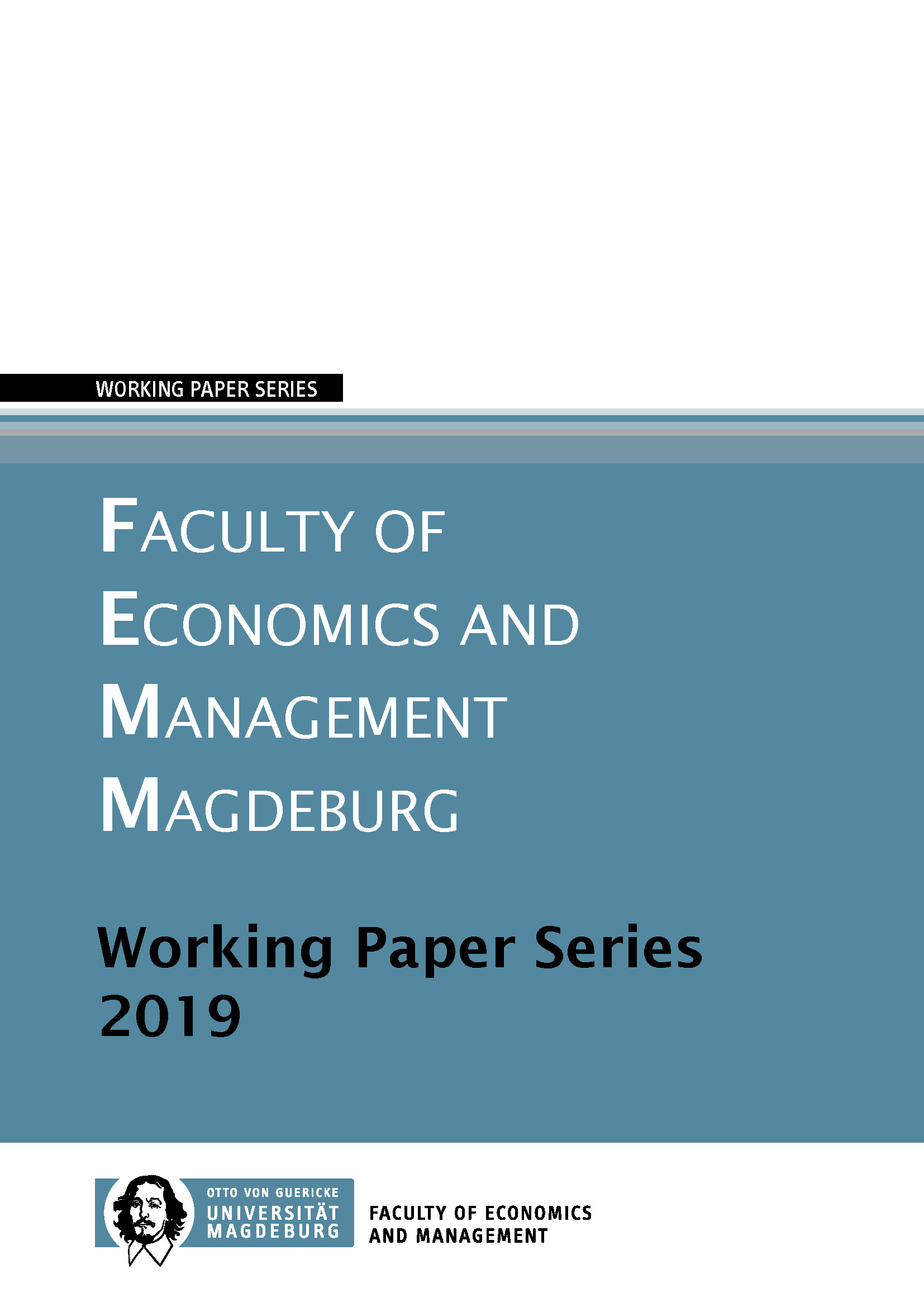Cap-and-Trade Policy vs. Carbon Taxation
Of Leakage and Linkage
DOI:
https://doi.org/10.24352/UB.OVGU-2019-083Schlagworte:
Climate Policy, Carbon Tax, Cap-and-Trade Policy, Linked Permit MarketsAbstract
We assess a 2-period, non-cooperative equilibrium of an n country policy game where countries chose either (i) carbon taxes, (ii) cap-and-trade policy with local permit markets or (iii) cap-and-trade policy with internationally linked permit markets and potential central redistribution of permit revenues. Policy makers maximizes welfare, which depends on household consumption over time and environmental damage from period-1 resource use. We assume costless and complete extraction of this non-renewable resource, so damage only depends on speed of extraction. Tax policy is the least efficient option due to carbon leakage, which introduces a second externality adding to the environmental externality. Cap-and-trade policy does not show any leakage since all symmetric countries will employ caps. Its equilibrium thus only suffers from the environmental externality and welfare is higher than under carbon taxation. The policy scenario with linked permit markets and central redistribution yields an efficient outcome. The redistribution of revenues creates a negative externality which offsets the positive environmental externality.


